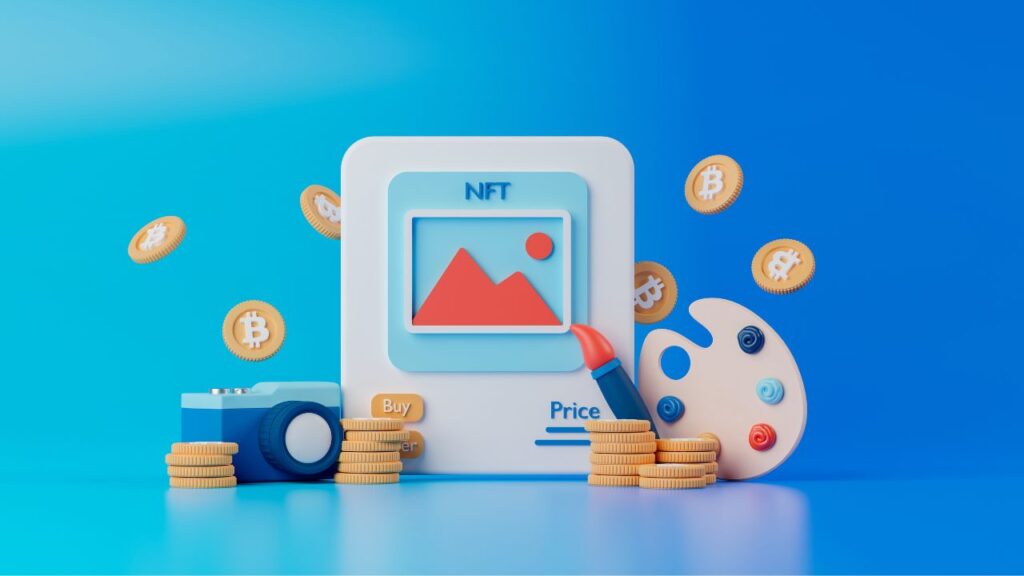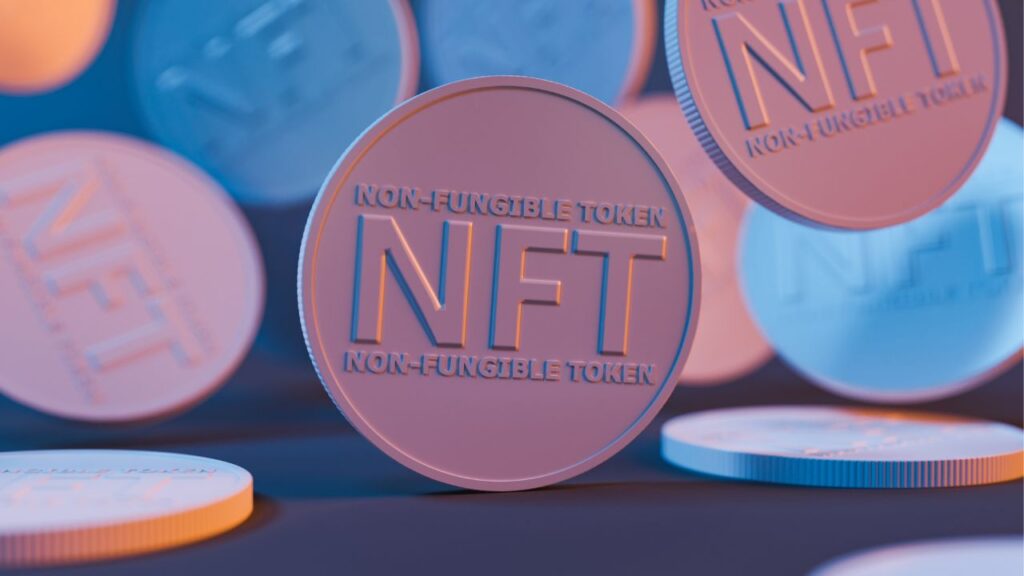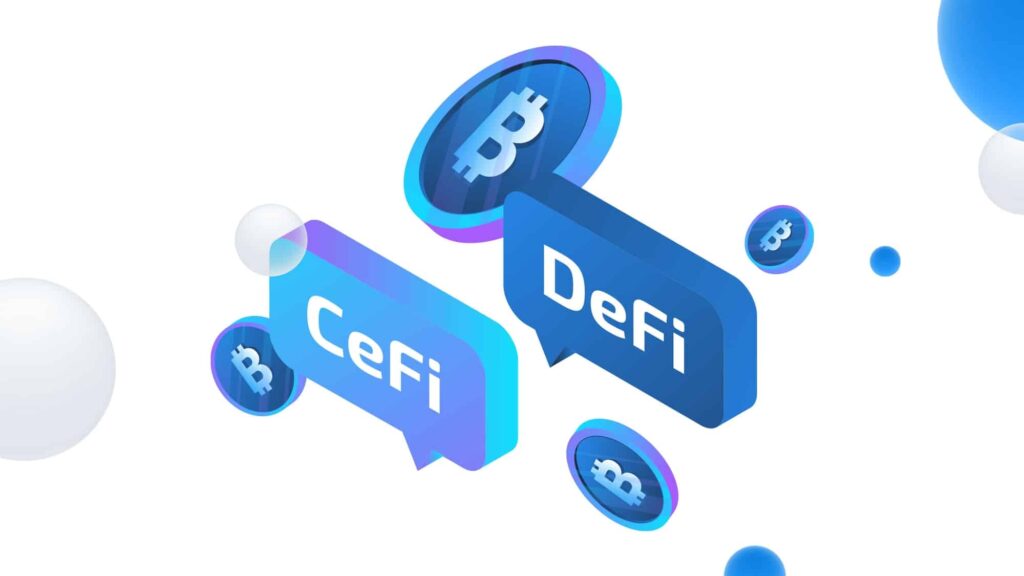
Trust–based Cryptocurrencies
Trust–based cryptocurrencies are digital currencies that rely on trust to provide a secure form of exchange. They are based on a distributed ledger system that records and stores all transactions in a secure, cryptographically–protected environment. Transactions occur between two parties without the need for a third party or central authority to verify them.
Instead, trust is built into the system through the use of various cryptographic techniques. These include digital signatures, proof–of–work algorithms, and consensus protocols. Trust–based cryptocurrencies are often used for peer–to–peer payments, smart contracts, and other decentralized applications.
Continuous Growth of DeFi Owing to Struggles of CeFi
The centralised finance (CeFi) system has been struggling since the pandemic hit the world. Banks have been forced to reduce their loan availability and interest rates, making it difficult for people to access easy and affordable capital.

This has caused a shift towards decentralised finance (DeFi) as a more attractive alternative to CeFi. DeFi‘s trustless, permissionless and transparent nature has made it a popular choice for investors looking to access capital without relying on traditional financial institutions.
Additionally, DeFi offers higher yields and faster transaction times than CeFi, furthering its appeal. This combined with the growing demand for digital assets has resulted in a continuous growth of DeFi as people look for alternative ways to finance their needs.
Financial Asset Tokenization
Asset tokenization is the process of transforming real–world assets into digital tokens, typically on a blockchain. Tokenization is used to provide secure digital representation of real–world assets, such as stocks, bonds, real estate, and even digital assets, such as cryptocurrencies and digital art.

Asset tokenization has the potential to revolutionize the way financial assets are bought, sold, and transferred, making it easier to tokenize and trade assets on a blockchain. Tokenization can also create liquidity and reduce costs associated with buying and selling traditional financial assets, such as stocks, bonds, and real estate.
Additionally, asset tokenization can make it easier to track ownership and to increase transparency, making financial services more efficient and secure.
Visibility of NFTs and Web3
NFTs, or non–fungible tokens, are a type of digital asset that are unique and non–interchangeable. They are typically used to represent items such as digital artwork, music, in–game items, and even physical items such as real estate, collectibles, and tickets.
NFTs are created and stored on the blockchain, a secure digital ledger technology. This makes them immutable, meaning they cannot be altered or counterfeited. Web3 is the term used to describe the latest version of the web, which is built on a decentralized network of computers and is powered by blockchain technology.

Web3 enables developers to create applications that are secure, reliable, and fast. It also enables users to have more control over their data, as well as access to a wider range of services and applications. The combination of NFTs and Web3 technology has the potential to revolutionize the way we interact with digital assets.
NFTs can be used to represent digital items such as artwork, music, and in–game items, as well as physical items such as real estate, collectibles, and tickets. With Web3, users can securely and reliably store and access these assets. Additionally, users can transact with these assets in a secure and transparent manner.
This could be particularly useful for the gaming industry, where users could securely buy, sell, and trade in–game items. Additionally, the combination of NFTs and Web3 could be used to create a marketplace for digital artwork, music, and collectibles.
Further Growth in Cryptocurrency Evangelism
The cryptocurrency world has been growing rapidly over the last few years and the cryptocurrency evangelism movement has been no exception. The movement has grown from a small community of passionate crypto enthusiasts to a larger and more diverse group of people who are passionate about the potential of blockchain technology and the role it can play in the future of our society.

Cryptocurrency evangelism has been credited with helping to spread awareness of the technology and its potential, as well as helping to bring new users into the cryptocurrency ecosystem. This has been done through online forums, meetups, and conferences, as well as through traditional marketing, such as radio and television ads.
The movement has also encouraged more people to join the cryptocurrency industry by providing education and resources to those who are interested in learning more about the technology. There have been a number of initiatives set up by cryptocurrency evangelists to help educate and inform the public on the potential and use cases of blockchain technology.
As the cryptocurrency market continues to grow, the cryptocurrency evangelism movement is likely to become even more prominent. The movement will continue to be a major force in the future of the cryptocurrency world, as more people become interested and involved in the technology. This will help to further spread awareness of cryptocurrency and its potential,
Centralized Finance Could Show Signs of Recovery
Centralized finance (CeFi) could show signs of recovery in the near future. The crypto market has been in a bear market for over a year, with most cryptocurrencies losing a significant amount of value. This has had a negative impact on CeFi, as it is heavily reliant on the performance of the crypto market.
However, there are signs that the market may be turning around and that CeFi could benefit from this. For example, many of the major exchanges have seen a surge in trading volume in the past few months, indicating increased investor interest in the crypto space.

Additionally, new projects are continuing to enter the space, providing additional opportunities for CeFi to grow. Finally, institutional investors are beginning to show signs of entering the market, which could provide a much–needed boost to the sector.
Expansion of Web3 Developer Tool Stack
The web3 developer tool stack has expanded significantly over the past few years, with a variety of new tools and technologies becoming available. These include:
- Web3 Frameworks: Web3 frameworks have become increasingly popular, providing developers with the ability to quickly and easily create decentralized applications. Popular frameworks include Ethereum, Hyperledger Fabric, and Quorum.
- Decentralized Storage Solutions: Decentralized storage solutions such as IPFS, Swarm, and Storj provide users with a secure, distributed way to store data.
- Decentralized Exchange Platforms: Decentralized exchanges such as 0x, Kyber Network, and Airswap allow users to securely and easily trade digital assets without the need to rely on a centralized authority.
- Blockchain APIs: Blockchain APIs such as Infura and Alchemy provide developers with easy access to a variety of blockchain networks.
- Smart Contract Languages: Smart contract languages such as Solidity, Vyper, and Simplicity allow developers to quickly and easily create smart contracts for a variety of use cases.
- Decentralized Identity Solutions: Decentralized identity solutions such as uPort, Civic, and Block
More Adoption of Zero–Knowledge Use Cases

- Cryptocurrency Wallets: Zero–knowledge proofs can be used to create cryptocurrency wallets that are more secure and private. Zero–knowledge proofs can be used to prove the ownership of a wallet without revealing the private keys or any other sensitive information.
- Online Payments: Zero–knowledge proofs can be used to enable more secure and private online payments. For example, a customer can use zero–knowledge proofs to prove to a merchant that they have sufficient funds to make a purchase without revealing their payment details.
- Identity Verification: Zero–knowledge proofs can be used to verify a person‘s identity without revealing any personal details. This could be used to allow customers to access online services without having to provide sensitive information such as their date of birth or address.
- Healthcare Records: Zero–knowledge proofs can be used to allow healthcare providers to access patient records without revealing any sensitive information. This could be used to provide doctors with access to patient records without revealing the patient‘s name or contact details.
- Data Protection: Zero–knowledge proofs can be used to prove that data has not been tampered with or accessed without permission. This could be used to ensure the security and privacy of sensitive or confidential data.
New Proceedings in Regulations
The process of creating new regulations varies depending on the specific regulations in question and the government body or organization responsible for drafting and passing them. Typically, a government agency or organization will draft a proposal for a new regulation or an amendment to an existing one.
This proposal is then sent to the appropriate legislative body for consideration and possible amendment. If the proposed regulation is approved by the legislative body, it is then published in the official government gazette. Finally, the regulation is enforced by the relevant government agency or organization.
Companies Would Use Blockchain Data
- Supply Chain and Logistics Companies: Blockchain data can be used to create a transparent and secure supply chain and logistics system. Companies can use this data to track the entire supply chain and ensure the accuracy of each transaction. This can help them minimize costs, reduce fraud and improve efficiency.
- Financial Companies: Companies in the financial sector can use blockchain data to create a secure, distributed ledger that can be used to store and manage digital transactions. This can help reduce costs, speed up transactions and improve auditability.
- Healthcare Companies: Blockchain data can be used to securely store patient data and medical records. This can help healthcare companies improve patient privacy and reduce fraud.
- Retail Companies: Retail companies can use blockchain data to create a secure and transparent system for tracking and verifying customer purchases. This can help reduce fraud and increase trust in the company.
- Government Agencies: Government agencies can use blockchain data to create secure systems for storing and managing public records. This can help reduce fraud, improve efficiency and increase transparency.








